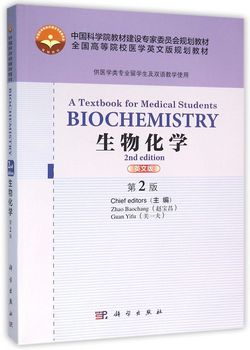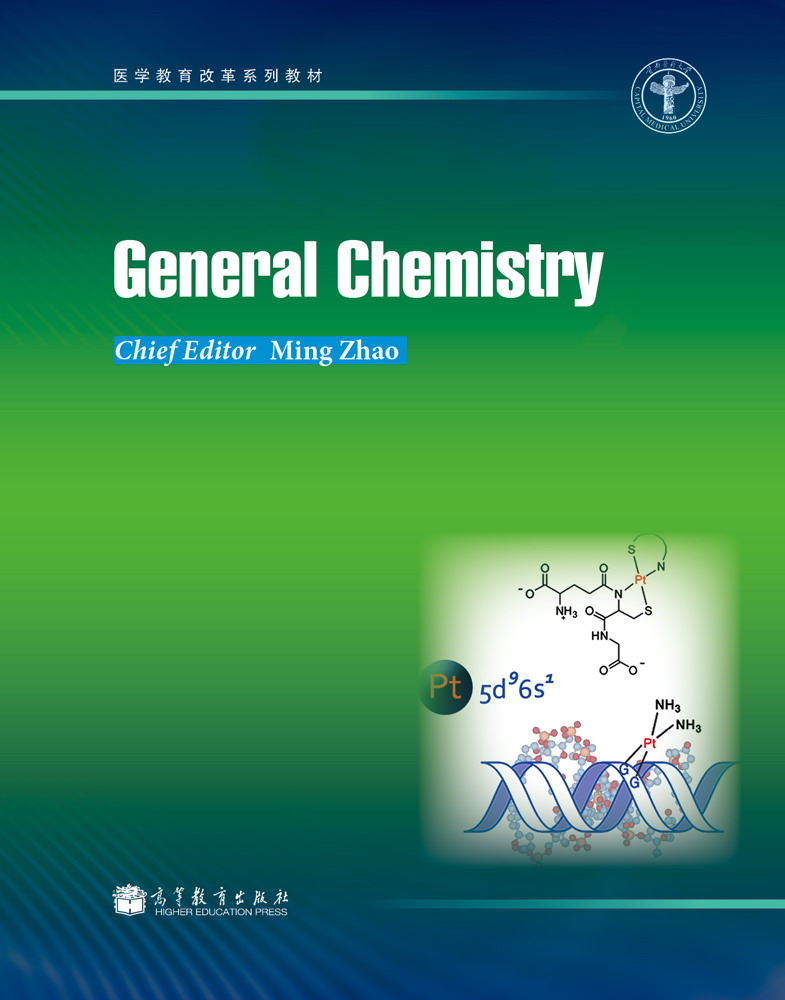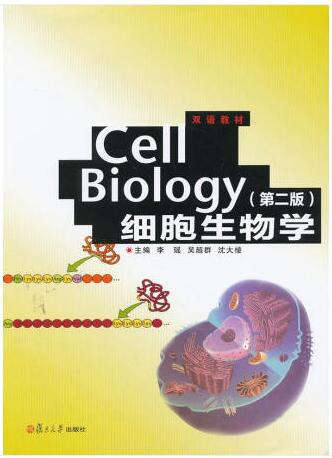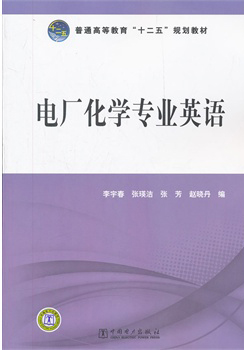- 科学出版社
- 9787030453266
- 2版
- 102947
- 42251735-9
- 平装
- 16开
- 2016-04
- 913
- 392
- 理学
- 生物学
- R815
- 医药
- 本科(长学制)
内容简介
本书是我国高等医学院校留学生本科教学和中英双语教学班教学的生物化学教材,内容为医学专业学生应该掌握的基础理论、基本知识和基本技能,同时也兼顾了国家执业医师考试的要求。全书20章,内容包括蛋白质、核酸和酶的结构与功能:糖、脂、氨基酸和核苷酸的代谢,以及生物氧化和代谢整合与调节:DNA、RNA和蛋白质的生物合成,基因表达的调控和DNA技术:细胞信号转导,癌基因、抑癌基因和生长因子:肝胆、血液、维生素与无机物的生物化学:基因组学与其他组学。全书预计图350幅,表格约70个。本书特别注重在华留学生和双语教学的需要
目录
Introduction
Chapter 1 Structures and Functions of Proteins
1.1 Amino Acid Composition in Proteins
1.2 Molecular Structure of Proteins
1.3 Structure-Function Relationship of Proteins
1.4 Classification of Proteins
1.5 Protein Physicochemical Properties and Protein Exploration
Chapter 2 Structures and Functions of Nucleic Acids
2.1 Structural Units of Nucleic Acids--Nucleotides
2.2 Structures and Functions of DNA
2.3 Structures and Functions of RNA
2.4 Properties of Nucleic Acids
2.5 Nucleases
Chapter 3 Vitamins
3.1 Fat-soluble Vitamins
3.2 Water-soluble Vitamins
Chapter 4 Enzymes
4.1 Structure and Function of Enzymes
4.2 Properties and Catalytic Mechanisms of Enzymes
4.3 Kinetics of Enzyme-Catalyzed Reactions
4.4 Regulatory Enzymes
4.5 Nomenclature and Classification of Enzymes
4.6 Clinical Applications of Enzymes
Chapter 5 Glycoconjugates
5.1 Molecular Structures of Glycans
5.2 Structures and Functions of Glycoproteins
5.3 Structures and Functions of Proteoglycans
5.4 Structures and Functions of Glycolipids
Chapter 6 Biological Oxidation
6.1 Electron Transport Chain
6.2 Oxidative Phosphorylation
6.3 ATP and the Other High Energy Compounds
6.4 Selective Transport across the Inner Mitochondrial Membrane
6.5 Other Biological Oxidations
Chapter 7 Carbohydrate Metabolism
7.1 Digestion and Absorption of Carbohydrates
7.2 Anaerobic Degradation of Glucose
7.3 Aerobic Oxidation of Glucose
7.4 Pentose Phosphate Pathway
7.5 Glycogen Formation and Degradation
7.6 Gluconeogenesis
7.7 Blood Sugar and Its Regulation
Chapter 8 Lipid Metabolism
8.1 Fatty Acids and Derivatives of Polyunsaturated Fatty Acids
8.2 Digestion and Absorption of Lipids
8.3 Metabolism of Fats
8.4 Metabolism of Phospholipids
8.5 Metabolism of Cholesterol
8.6 Metabolism of Plasma Lipoproteins
Chapter 9 Protein Catabolism
9.1 Nutritional Roles of Dietary Proteins
9.2 Digestion, Absorption and Putrefaction of Dietary Proteins
9.3 Degradation of Protein in Cells
9.4 General Catabolism of Amino Acids
9.5 Metabolism of Ammonia
9.6 Individual Amino Acid Catabolism
Chapter 10 Nucleotide Metabolism
10.1 Biological and Medical Functions of Nucleotides
10.2 Degradation of Nucleic Acids
10.3 Metabolism of Purine Nucleotides
10.4 Metabolism of Pyrimidine Nucleotides
10.5 Deoxyribonucleotide Biosynthesis
10.6 Biosynthesis of Nucleoside Diphosphate and Nucleoside Triphosphate
10.7 Dysmetabolism of Nucleotides and Antimetabolites
Chapter 11 Blood Biochemistry
11.1 Plasma Proteins
11.2 Structure and Function of Albumin
11.3 Synthesis of Hemoglobin and Its Regulation
11.4 Metabolism of Blood Cells
Chapter 12 Liver Biochemistry
12.1 The Role of Liver in Material Metabolism
12.2 Hepatic Biotransformation
12.3 Metabolism of Bile Acid
12.4 Bile Pigment Metabolism and Jaundice
Chapter 13 Mineral Biochemistry
13.1 Calcium, Phosphorus, and Magnesium Metabolism
13.2 Trace Elements
Chapter 14 Integration and Regulation of Metabolism
14.1 Common Characteristics of Metabolism
14.2 Intereonnections of Metabolism
14.3 Metabolic Specializations of Some Organs
14.4 Regulatory Strategy of Metabolism
Chapter 15 DNA Biosynthesis
15.1 General Features of DNA Replication
15.2 Enzymology and Topology of DNA Replication
15.3 Replication of Prokaryotic Systems
15.4 Replication of Eukaryotic Systems
15.5 Reverse Transcription and Other Modes of DNA Replication
Chapter 16 DNA Damage and Repair
16.1 DNA Damage
16.2 Repair of DNA Damage
16.3 Significance of DNA Damage and Repair to DNA Damage
Chapter 17 RNA Biosynthesis and Processing
17.1 Overview of Transcription
17.2 Transcription in Prokaryotes
17.3 Transcription in Eukaryotes
17.4 Processing of Eukaryotic RNAs
Cha
Chapter 1 Structures and Functions of Proteins
1.1 Amino Acid Composition in Proteins
1.2 Molecular Structure of Proteins
1.3 Structure-Function Relationship of Proteins
1.4 Classification of Proteins
1.5 Protein Physicochemical Properties and Protein Exploration
Chapter 2 Structures and Functions of Nucleic Acids
2.1 Structural Units of Nucleic Acids--Nucleotides
2.2 Structures and Functions of DNA
2.3 Structures and Functions of RNA
2.4 Properties of Nucleic Acids
2.5 Nucleases
Chapter 3 Vitamins
3.1 Fat-soluble Vitamins
3.2 Water-soluble Vitamins
Chapter 4 Enzymes
4.1 Structure and Function of Enzymes
4.2 Properties and Catalytic Mechanisms of Enzymes
4.3 Kinetics of Enzyme-Catalyzed Reactions
4.4 Regulatory Enzymes
4.5 Nomenclature and Classification of Enzymes
4.6 Clinical Applications of Enzymes
Chapter 5 Glycoconjugates
5.1 Molecular Structures of Glycans
5.2 Structures and Functions of Glycoproteins
5.3 Structures and Functions of Proteoglycans
5.4 Structures and Functions of Glycolipids
Chapter 6 Biological Oxidation
6.1 Electron Transport Chain
6.2 Oxidative Phosphorylation
6.3 ATP and the Other High Energy Compounds
6.4 Selective Transport across the Inner Mitochondrial Membrane
6.5 Other Biological Oxidations
Chapter 7 Carbohydrate Metabolism
7.1 Digestion and Absorption of Carbohydrates
7.2 Anaerobic Degradation of Glucose
7.3 Aerobic Oxidation of Glucose
7.4 Pentose Phosphate Pathway
7.5 Glycogen Formation and Degradation
7.6 Gluconeogenesis
7.7 Blood Sugar and Its Regulation
Chapter 8 Lipid Metabolism
8.1 Fatty Acids and Derivatives of Polyunsaturated Fatty Acids
8.2 Digestion and Absorption of Lipids
8.3 Metabolism of Fats
8.4 Metabolism of Phospholipids
8.5 Metabolism of Cholesterol
8.6 Metabolism of Plasma Lipoproteins
Chapter 9 Protein Catabolism
9.1 Nutritional Roles of Dietary Proteins
9.2 Digestion, Absorption and Putrefaction of Dietary Proteins
9.3 Degradation of Protein in Cells
9.4 General Catabolism of Amino Acids
9.5 Metabolism of Ammonia
9.6 Individual Amino Acid Catabolism
Chapter 10 Nucleotide Metabolism
10.1 Biological and Medical Functions of Nucleotides
10.2 Degradation of Nucleic Acids
10.3 Metabolism of Purine Nucleotides
10.4 Metabolism of Pyrimidine Nucleotides
10.5 Deoxyribonucleotide Biosynthesis
10.6 Biosynthesis of Nucleoside Diphosphate and Nucleoside Triphosphate
10.7 Dysmetabolism of Nucleotides and Antimetabolites
Chapter 11 Blood Biochemistry
11.1 Plasma Proteins
11.2 Structure and Function of Albumin
11.3 Synthesis of Hemoglobin and Its Regulation
11.4 Metabolism of Blood Cells
Chapter 12 Liver Biochemistry
12.1 The Role of Liver in Material Metabolism
12.2 Hepatic Biotransformation
12.3 Metabolism of Bile Acid
12.4 Bile Pigment Metabolism and Jaundice
Chapter 13 Mineral Biochemistry
13.1 Calcium, Phosphorus, and Magnesium Metabolism
13.2 Trace Elements
Chapter 14 Integration and Regulation of Metabolism
14.1 Common Characteristics of Metabolism
14.2 Intereonnections of Metabolism
14.3 Metabolic Specializations of Some Organs
14.4 Regulatory Strategy of Metabolism
Chapter 15 DNA Biosynthesis
15.1 General Features of DNA Replication
15.2 Enzymology and Topology of DNA Replication
15.3 Replication of Prokaryotic Systems
15.4 Replication of Eukaryotic Systems
15.5 Reverse Transcription and Other Modes of DNA Replication
Chapter 16 DNA Damage and Repair
16.1 DNA Damage
16.2 Repair of DNA Damage
16.3 Significance of DNA Damage and Repair to DNA Damage
Chapter 17 RNA Biosynthesis and Processing
17.1 Overview of Transcription
17.2 Transcription in Prokaryotes
17.3 Transcription in Eukaryotes
17.4 Processing of Eukaryotic RNAs
Cha









